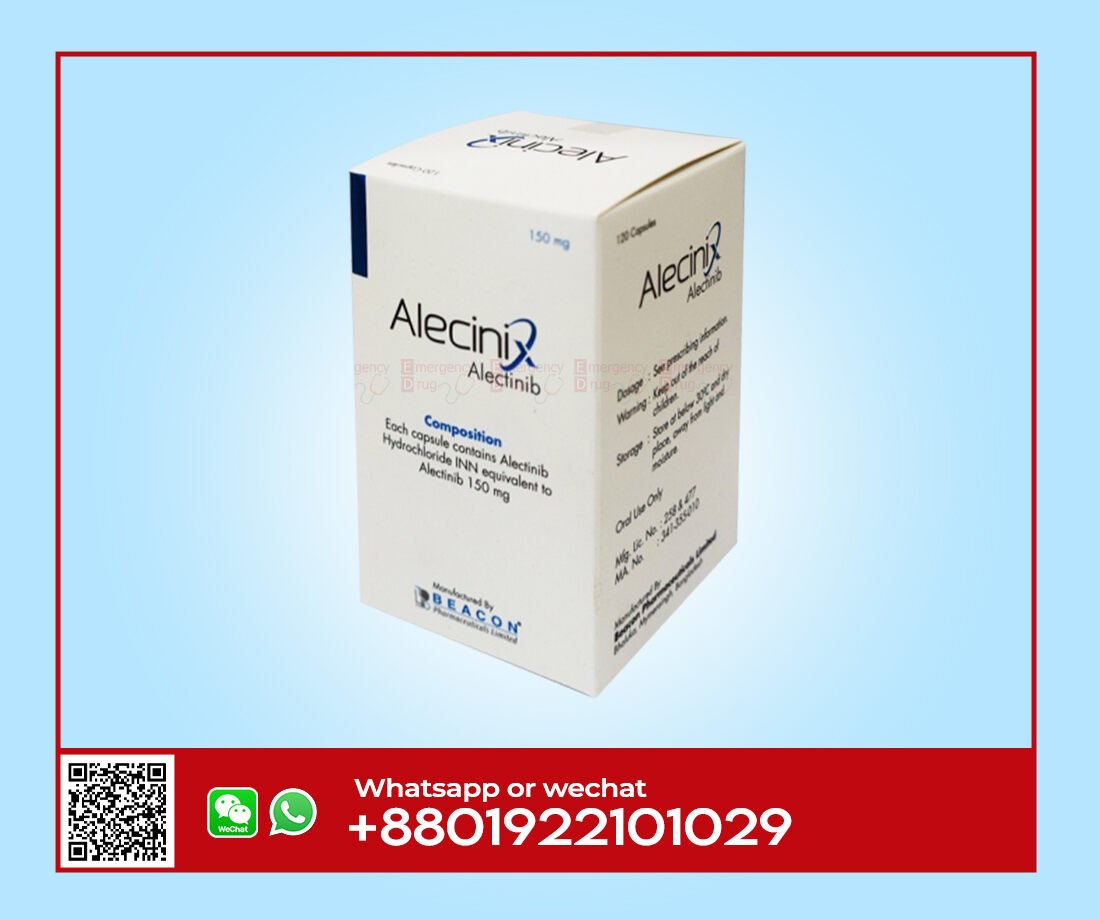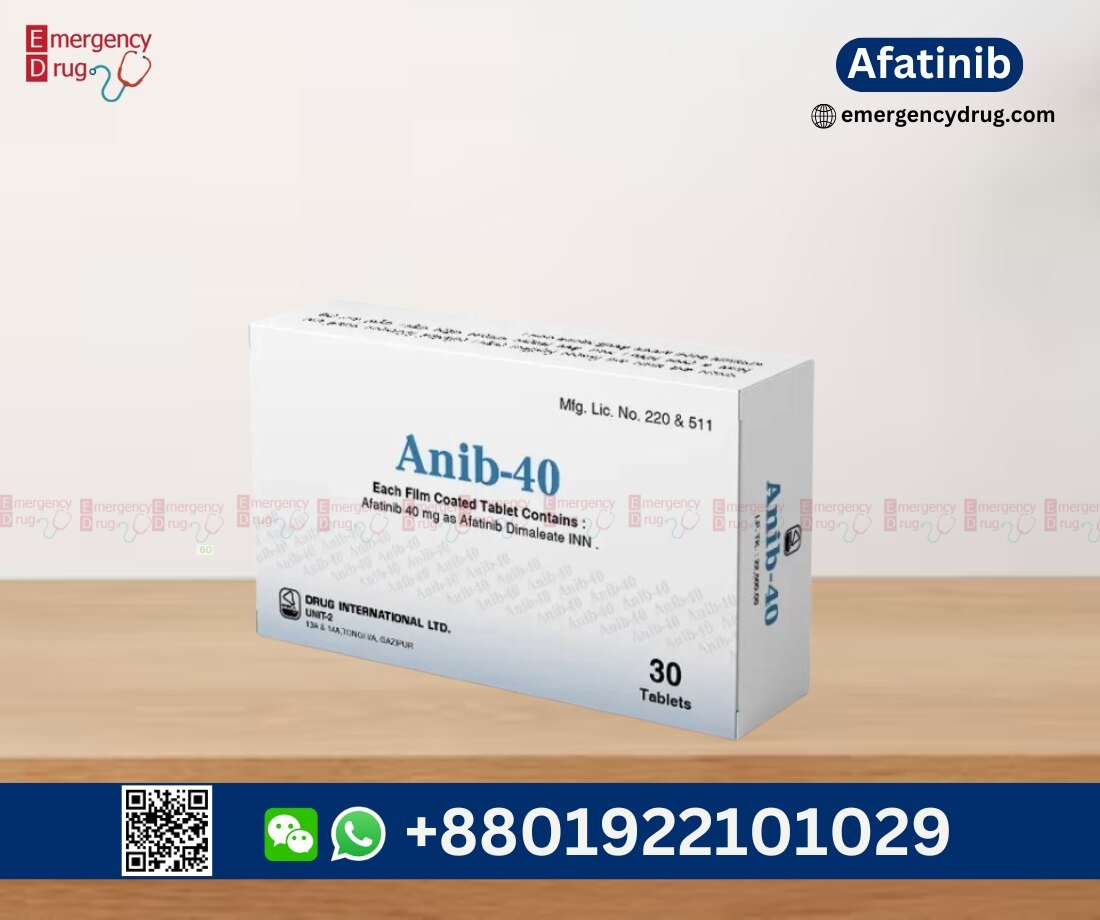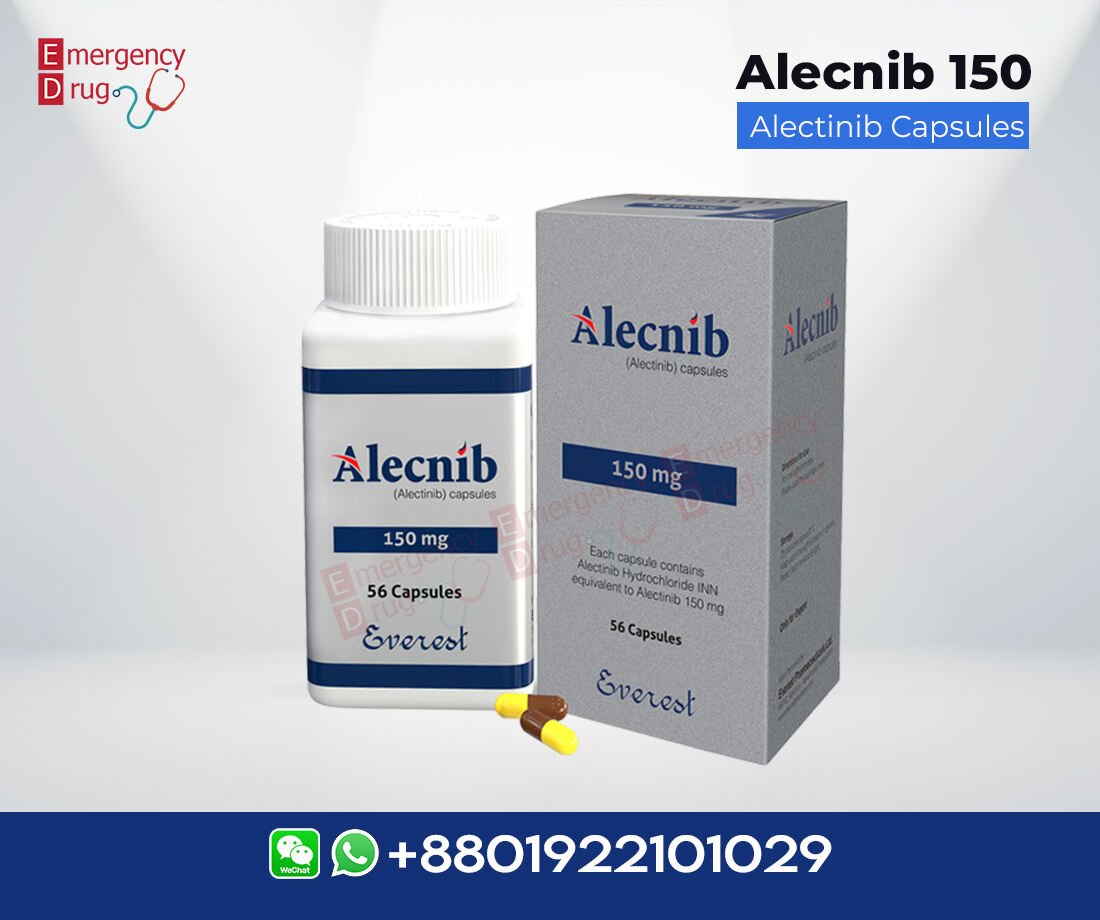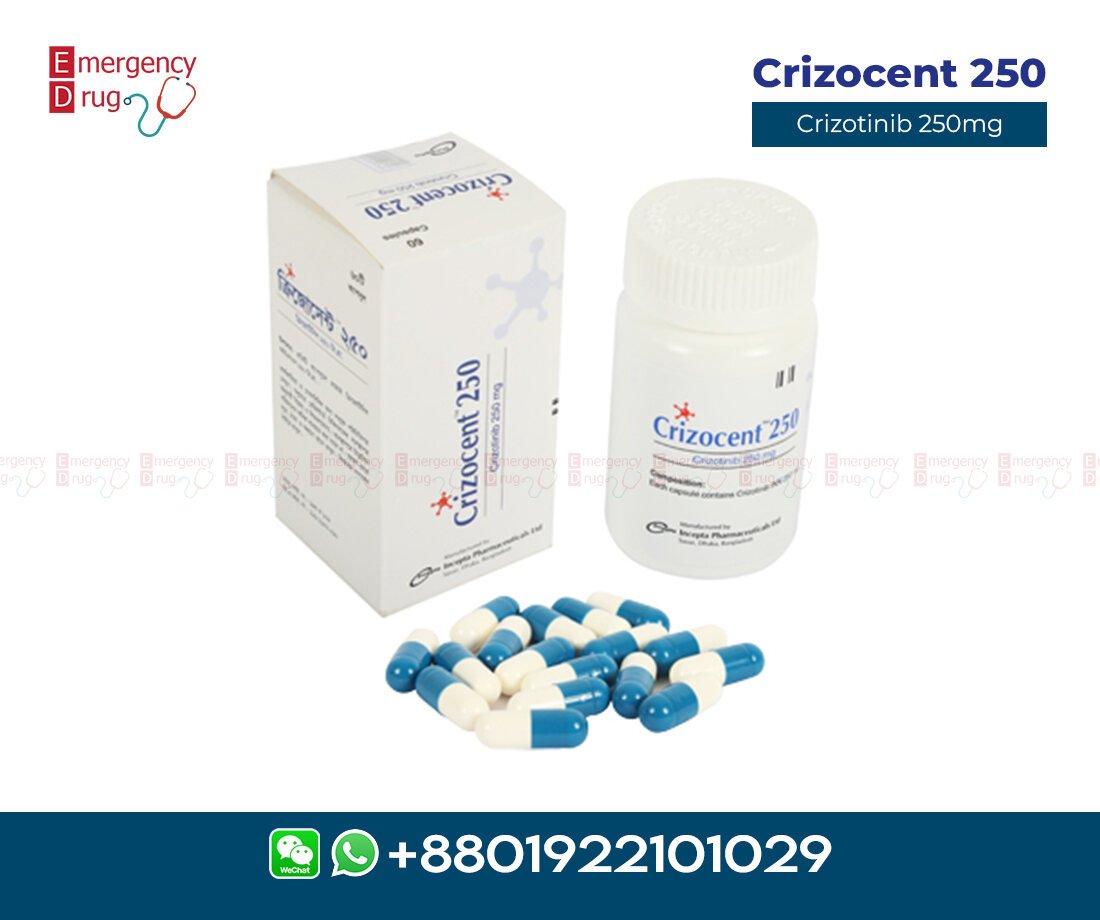Description
Erlocent 150 mg
Product Features:
| Product Name | : Erlocent |
| Generic Name | : Erlotinib |
| Manufacturer | : Incepta Pharmaceuticals Ltd |
| Indication | : Lung & Pancreatic Cancer |
| Formulation | : Tablet |
| Strength | : 150 mg |
| Quantity | : 10 Tablets |
| Storage | : Below 30°C |
| Registrations | : Export Only |
Erlocent 150 mg Price: $75.00
DESCRIPTION:
Erlotinib is a quinazolinamine (N-(3-ethynylphenyl)-6,7-bis(2-methoxyethoxy)4-quinazolinamine), which is a kinase inhibitor. Erlotinib is a reversible inhibitor of the kinase activity of EGFR, preventing receptor-associated tyrosine residues’ autophosphorylation and blocking downstream signaling. Erlotinib has high binding affinity for both EGFR exon 19 deletion or exon 21 (L858R) mutations compared to its affinity for the wild type receptor. The impact of erlotinib inhibition on other tyrosine kinase receptors has not been completely defined.
INDICATIONS AND USAGE:
Erlocent 150 mg (Erlotinib) is tyrosine kinase inhibitor indicated for:
Non-Small Cell Lung Cancer (NSCLC): In patients with locally advanced or metastatic NSCLC whose disease progresses on or after one prior chemotherapy regimen.
Pancreatic Cancer: In combination with gemcitabine for locally advanced, unresectable, or metastatic pancreatic cancer.
DOSAGE AND ADMINISTRATION:
Non-Small Cell Lung Cancer (NSCLC): 150 mg PO qd, ≥1 hour before or 2 hours after food.
Pancreatic Cancer: 100 mg orally once a day in combination with gemcitabine, administered at least 1 hour before or 2 hours after food
Continue until disease progression or unacceptable toxicity.
CONTRAINDICATIONS:
Hypersensitivity to erlotinib or to any of the excipients.
SIDE EFFECTS:
The most frequently reported adverse reactions were rash, cough, anorexia, vomiting, dyspnea, diarrhea, nausea, and fatigue.
WARNINGS AND PRECAUTIONS:
- Interstitial Lung Disease (ILD): ILD-like events have been reported. If ILD is suspected, discontinue use.
- Monitoring Hepatic Toxicity: Liver function tests.
- Gastrointestinal Perforation: Withhold in patients with severe GI perforation.
- Skin Reactions: Rash and other dermatologic reactions are not uncommon. Use with caution in patients with topical dermatologic disease.
- Ocular Disorders: Keratitis has occurred.
- Smoking: use of tobacco decreases erlotinib concentration and efficacy.
ADVERSE REACTIONS:
More common: Rash, diarrhea, nausea, vomiting, fatigue, dyspnea, cough, decreased appetite.
Serious adverse reactions: ILD, hepatic failure, GI perforation, Stevens-Johnson syndrome, MI.
DRUG INTERACTIONS:
CYP3A4 inhibitors increase Erlotinib plasma concentrations
CYP3A4 inducers decrease Erlotinib plasma concentrations
Erlotinib plasma concentration reduced by drugs affecting gastric pH
Erlotinib plasma concentrations are lower in cigarette smokers
USE IN SPECIFIC POPULATIONS:
Pregnancy: Category D. Fetal Risk.
Lactation: Not recommended; do not breast-feed.
Pediatric Use: Safety and efficacy not established.
Geriatric Use: No significant differences in response observed.
Hepatic Impairment: Use with caution; dose adjustment may be necessary.
STORAGE AND HANDLING:
Store at 20°C to 25°C (68°F to 77°F). Protect from moisture and light. Keep out of reach of children.
SUPPLIED PARTNER
All the intravenous drugs are delivered with guaranteed lowest price from Emergency Drug. They are also partnered with trustworthy manufacturers further maintaining a high standard for their medicines. With a customer-first approach they are your Trusted Partner in all things Pharmaceuticals.
Disclaimer: This information is provided solely for educational reasons and should not be considered medical advice. Always consult with your doctor or healthcare professional before taking any drug.








Reviews
There are no reviews yet.